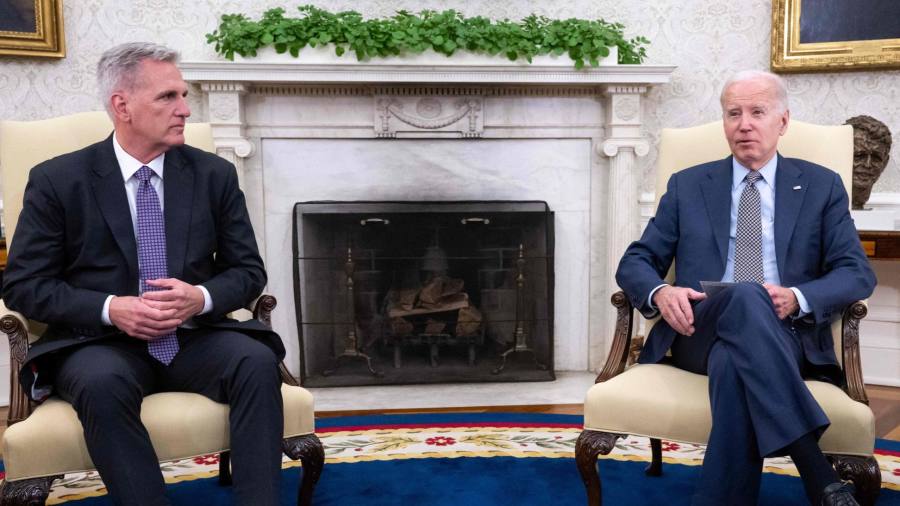
Compared with what could have happened, it was close to being the least bad outcome possible. The deal that President Joe Biden struck with Kevin McCarthy, the Republican Speaker, to avert a US sovereign default was hammered out under duress. No other large economy has a debt ceiling rule let alone a routine habit of playing chicken with it. But the final package, which was passed by a surprisingly wide margin in the House of Representatives on Wednesday night, and is likely to be approved by the Senate over the weekend, was modest. It should not take the spectre of financial catastrophe to agree what in budgetary terms was a minor bipartisan compromise.
It nevertheless marks another win for the serially underestimated Biden and a moment of relief for McCarthy, who sidelined the most extremist members of his party.
The deal as a whole also strikes a very positive contrast with the last such bout of debt ceiling brinkmanship in 2011. Unlike Biden, who insisted until two weeks ago that he wanted a “clean” debt bill passed, President Barack Obama agreed to negotiate a fiscal discipline plan with the newly elected Tea Party Republicans under the same threat.
The result was an averted sovereign default but at considerably higher expense than the Biden-McCarthy deal. At a fragile stage of the US recovery after the 2008 financial crisis, Obama agreed to the so-called sequestration rule, which cut US spending in real terms by $2.4tn over a decade. This was a contractionary step at precisely the wrong point in the US business cycle, when interest rates were in effect at zero and private sector investment was still anaemic. US growth suffered as a result.
By contrast, the Biden-McCarthy deal could even prove to be mildly positive. It reduces US spending by $136bn over the next two years, which could mildly ease pressure on the US Federal Reserve to raise interest rates. At a time of full unemployment and robust consumer demand that means it is countercyclical. More importantly — and in contrast to the Obama deal with the Tea Party — it does no harm.
Hardline members of the Republican Freedom Caucus wanted to gut Biden’s Inflation Reduction Act, which provides hundreds of billions of dollars in green energy finance over the next decade. They also wanted to scrap the budget to modernise the much-depleted Internal Revenue Service. Their plan would have cut US non-defence discretionary spending in half over the next 10 years. Finally, they would only have extended the debt limit to 2024, which would have set up another highly destabilising battle during a presidential election year.
On each of these points, Biden got his way. The debt ceiling has been suspended until early 2025, which takes the election year risk out of it. The spending limits are modest and will expire after two years. The IRS budget is mostly preserved and the IRA has emerged intact. This is a great relief to the markets, to the dollar’s standing as the global reserve currency, and to Biden’s ability to govern in a relatively calm atmosphere for the rest of his term. On this occasion, the US centre held.
Against that is the cost of retaining America’s nonsensical debt ceiling. The US does have a growing long-term debt problem, which needs to be addressed both on the spending and tax side. That will require bipartisan negotiations under rational conditions. This time, a self-inflicted disaster was avoided. But at some point the US system is likely to miscalculate and self-detonate. The sooner the debt ceiling is abolished, and replaced with sensible measures to target debt sustainability, the better.